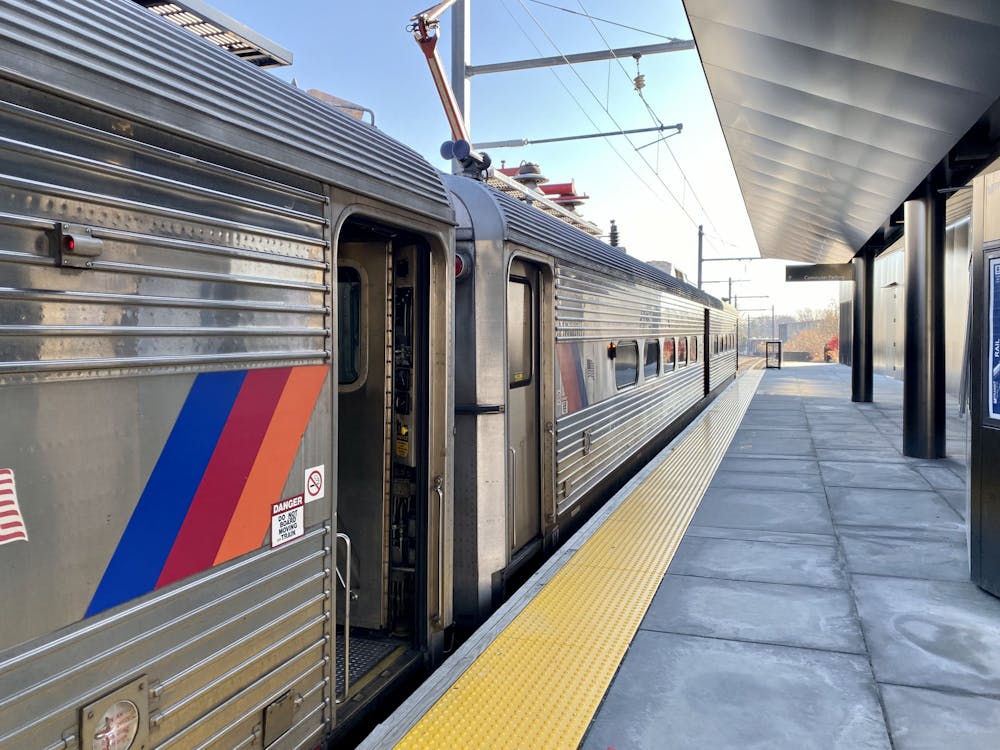On Jan. 24, New Jersey Transit (NJ Transit) proposed a 15 percent fare increase starting July 1, which will be indefinitely followed by annual 3 percent fare increases thereafter. According to NJ Transit's announcement of the proposal, the fare increase is an effort to close the $106.6 million budget deficit.
NJ Transit invited transit customers to 10 public hearings in 10 New Jersey counties from March 4 through 8. Following the public commentary period, the NJ Transit Board of Directors will consider the proposal.
The last price increase occurred in 2015 and raised fares by 9 percent. Although public hearings were held, the proposal passed in its original form. The Daily Princetonian spoke with a nonprofit focused on transportation advocacy and an urban studies expert, who explained the causes and consequences of the fare increase.
In an interview with the ’Prince’, Nedia Morsy, the Director of Strategic Projects for Make the Road NJ expressed the organization’s opposition to the proposal and their ongoing work to prevent the fare increase since they learned about it one year ago. Make the Road NJ works to support working-class, Latino communities in Passaic, Perth Amboy and Elizabeth, which Morsy described as “heavily transit-reliant places.” According to Morsy, the organization previously canvassed on Princeton’s campus to protest the fare increases.
“Our members use the bus and train for everything: work, to visit each other, and to find work, which I think folks often forget,” she told the ‘Prince.’
In conjunction with the New Jersey budget coalition For the Many NJ, Make the Road NJ led a campaign calling on the state to extend the corporate business tax, which expired on Dec. 31, 2023. The tax, which brought in approximately $1 billion in revenue each year, was passed in 2019. Morsy and other opponents of the fare hikes believe the corporate business tax could have provided NJ Transit the necessary revenue to make up for the budget shortfall without raising prices.
“There is no plan in sight to fund transit, so these fare hikes and continued service cuts are a part of a conversation that our members — working-class people, [Black, Indigenous, People of Color (BIPOC)] people — have been rallying around for a very long time,” Morsy said.
In an interview with the ‘Prince,’ Aaron Shkuda, the Project Manager of the Princeton-Mellon Initiative in Architecture, Urbanism, and the Humanities explained the potential reasons behind the NJ Transit fare increase, including people increasingly working-from-home and a decrease in federal funding after the COVID-19 pandemic as the most likely causes. In the proposal announcement, NJ Transit stated that current ridership is at just 80 percent of pre-pandemic levels.

“New Jersey Transit is designed to essentially get people to office centers in Midtown, or perhaps lower Manhattan at nine o’clock and then take them home at five o’clock. With that not happening for as many workers as much anymore, there are serious funding challenges,” Shkuda said.
Shkuda further explained that the deficit occurred because very few public transit agencies are profitable and most are subsidized by their governments. He continued that NJ Transit does not receive a set amount of New Jersey tax revenue, but funding varies on a yearly basis, which can leave the organization with a budget gap.
NJ Transit did not immediately respond to a request for comment.
“Those agencies are not running a profit. They’re all heavily subsidized by the government. We do a very, very poor job of that in New Jersey and in the country as a whole,” he said.

Shkuda added that the price increase is not significant enough to impact University classes that travel to New York using NJ Transit.
Morsy told the ‘Prince’ she is worried there is a lack of subsidizing that results in what she called “a tax on the working poor” and believes there is “really powerful commentary to be made about who rides the bus, and who doesn’t care about who rides the bus."
Olivia Sanchez is an associate News editor for the ‘Prince.’
Please send corrections to corrections[at]dailyprincetonian.com.








